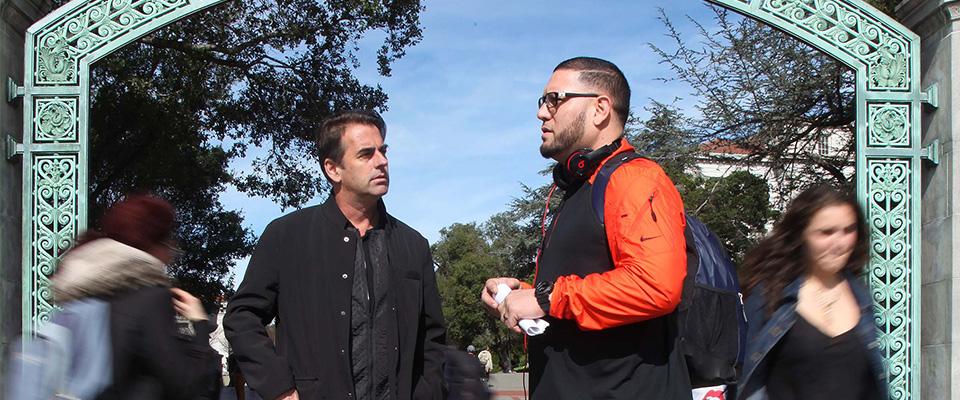Remember in 2012 when the City of Berkeley decided to redraw its electoral map so that students would be better represented at City Hall?
And remember when, a year later, a group of Cal student politicos submitted their own map which bumped the quotient of students in campus-capped District 7 to a whopping 86 percent, all but guaranteeing that undergrads would have a voice on the council? After decades of student efforts to sell the idea, Berkeley was hailed for becoming the nation’s first city to create a student-centric district.
Ah, but then recall how, in the months that followed, a competing map was introduced by the current incumbent and his co-op-residing student allies, which sparked a political fracas over the best way to represent Cal student interests? For the students, it was a crash course in the frustrations of political bureaucracy—and a battle so furious that it resulted in the city suing itself.
Well, as of yesterday at 5 p.m., the deadline for aspiring District 7 candidates came and went. And guess who didn’t file?
In what could alternately be described as poetic irony or simply “the inevitable,” no current student decided to run this November to represent the long-awaited and much-debated student district. Instead, Southside voters will have a choice between incumbent Kriss Worthington, who has been on the council nearly two decades, and recent UC Berkeley grad Sean Barry.
Nonetheless, one of the principal organizers behind the student district map campaign insists the lack of a student candidate shouldn’t be conflated with a lack of student interest. It couldn’t have helped that the filing deadline fell in early August, before most students return to Berkeley for the fall semester. And Safeena Mecklai, the former external affairs vice present of the Associated Students of the University of California (ASUC), blames the “crazy” redistricting fight.
“I think there was a lot of confusion about whether or not the district would exist and what it would look like,” she says. “I heard from a lot of people who expressed interest in either running or getting involved with whichever student decided to run, so the interest was definitely there. But all the questions really delayed the decision making process for everyone.”
Still, Mecklai considers Barry, a 27-year-old Berkeley native, the next best thing. “The last time a student was on council was 1992, so I also think it’s really hard for students to conceptualize themselves as candidates,” she says. “Seeing someone like Sean, who is younger, who is prioritizing UC issues in his campaign, is a good, intermediate step.”
“I’m not running because I want to do this job for 20 years,” Barry says. “I support the new district lines. I think it’s a terrific opportunity for new grads and students for years to come, and I hope that door will be open in the future and I’m confident that it will be.” Prior to announcing his candidacy, he says he consulted with student government representatives, including Mecklai, to make sure he “wouldn’t be stepping on anyone’s toes.”
A former political science major and former reporter at The Daily Californian student newspaper, he graduated in 2009 and now serves on both the city’s Planning and Health Commissions. “I’ve been an undergraduate here, but also a high school student and a middle school student,” he says. “This is an opportunity to bring a different perspective to the council, but not at the detriment of focusing on citywide issues.”
He will face off against Worthington, who maintains he has always been attentive and responsive to student concerns and has often appointed students to city commissions.
Stefan Elgstrand, a recent graduate and one of Worthington’s key student supporters during last spring’s map battle, criticizes former student government leaders such as Mecklai for prematurely endorsing Barry, which he says pressured any would-be student candidates from running. “Because they had thrown all their support to Barry, it didn’t give actual students time to run,” he says. “Maybe it wasn’t about getting a student elected, but rather, trying to get someone elected other than councilmember Worthington. Sean Barry is usually on the other side of issues, along with the people from ASUC.”
Barry, of course, denies that students weren’t given enough time, adding saying he hasn’t heard of anybody who stepped aside because he is running.
Still, for now the goal of an actual UC student on the council will remain unrealized, despite a vigorous and media-savvy campaign to push the idea. “Have you ever wondered how to find more affordable student housing or make a complaint to your elected official in Berkeley?” organizers Shahryar Abbasi, Noah Efron and Michael Manset had asked students in 2013 op-ed. “What if you ran into your city council member in Wheeler Auditorium as you headed into class? It would make it much easier to remind the council member about those burned out street lights that make walking home risky.”
Instead, students will once again be reliant on a non-student to represent their interests to the city. Speaking to the Daily Cal late this week, outgoing Councilmember Gordon Wozniak said he was “very disappointed that a student hasn’t decided to run.”


















